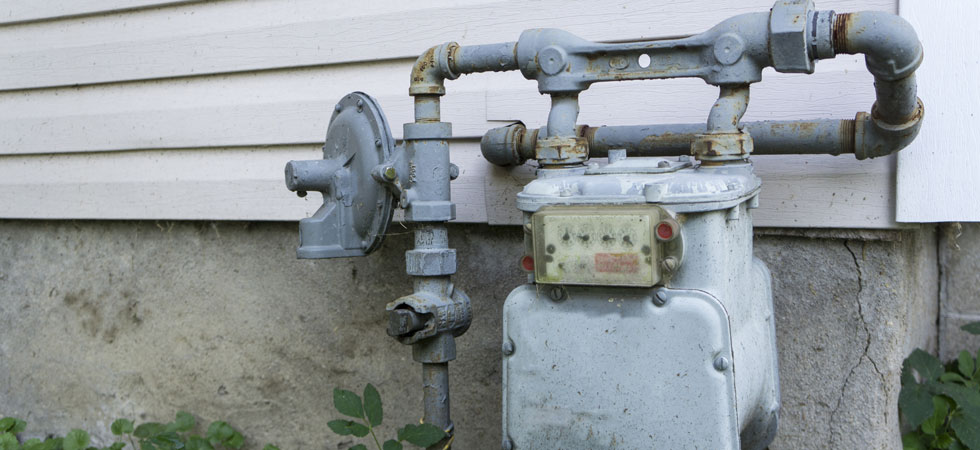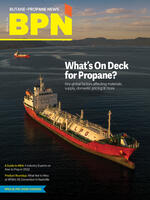
In February 2022, the Texas Supreme Court overturned a $6.9 million verdict in a residential natural gas explosion personal injury lawsuit against a gas utility. The explosion resulted from a gas leak in customer-owned piping inside the house, and the court invoked a utility tariff provision that shields the utility from liability for losses caused by leaks from customer piping or appliances. The case is CenterPoint Energy Resources v. Ramirez.
Open Line & Explosion
The explosion occurred at the residence of Adrian and Graciela Castillo in Laredo, Texas. The house was built by WestWind Homes, and its gas lines were installed by a plumbing company called Armando Aguilar & Sons. The Castillos had purchased the home in 2011, and they were its first owners. The City of Laredo issued a certificate of occupancy, certifying that the home was built to code. CenterPoint, the local natural gas utility, installed a gas meter and initiated service to the house.
Graciela’s parents, Fernando and Minerva Ramirez, often visited the house in the ensuing years, and they availed themselves of the natural gas appliances, including a cooking range and hot water heater. In February 2015, the electric clothes dryer in the house developed a problem, and Fernando Ramirez attempted to repair it.
However, in the process of this repair work he inadvertently opened an uncapped valve on an unused branch gas line behind the dryer. It is not entirely clear from the court’s opinion why this branch line and uncapped valve outlet existed in a brand-new house, but it is possible the plumber installed the line to be available in case the homeowner wanted to switch the dryer from electric to gas. In any event, gas escaped from this open valve outlet and ignited. Ramirez was seriously injured in the explosion.
Lawsuit & Verdict
Ramirez sued WestWind, Aguilar and CenterPoint for personal injury damages. He alleged that all three defendants had breached a duty to cap or plug the open valve outlet. Both the National Fuel Gas Code (NFPA 54) and the International Fuel Gas Code have long required that open gas lines and valve outlets be capped or plugged. It appears that this requirement was included in Laredo’s building code. In the case of CenterPoint, the claim was that the utility should have found and capped the open valve outlet near the dryer when it initiated gas service to the residence and introduced gas into the new system.
At some point, Aguilar settled the claims against it. The case then proceeded to a jury trial against WestWind and CenterPoint. The jury found no negligence on the part of Ramirez and assessed 60% fault to WestWind, 34% fault to CenterPoint and 6% fault to Aguilar (which remained on the verdict form even though it had settled). The jury assessed Fernando’s damages at $6.9 million.
Section 14
CenterPoint immediately sought to vacate the verdict against it. Among other things, it invoked Section 14 of its utility tariff, which provides in part:
“14. ESCAPING GAS
... Company shall not be liable for any damage or loss caused by the escape of gas from Consumer’s house-piping or Consumer’s appliances.”
CenterPoint claimed that the lawsuit against it should have been dismissed and the jury verdict should be vacated because the loss here was undeniably caused by the escape of gas from the Castillos’ house-piping, and the loss resulted from gas escaping beyond the point of delivery.
What Is a Tariff?
Tariffs, while essentially unknown to the propane industry, are a key element of the regulatory scheme for natural gas utilities. Unlike a propane distributor, a natural gas utility is granted a monopoly within its service territory. But while gas utilities are free from competition, the price charged for the gas they distribute is strictly regulated. A gas utility must file a proposed tariff with a state regulatory commission (in this case, the Texas Railroad Commission) for its review and approval.
This proposed tariff lists the utility’s services, and it sets forth the prices to be charged for those services. The tariff may include a limitation on liability, such as Section 14, on the theory that such provisions allow the utility to reduce costs and therefore charge lower prices. Once approved by the state regulatory commission, the tariff has the force and effect of law.
Appeal
In the Ramirez case, the trial court rejected CenterPoint’s post-trial motions, and CenterPoint appealed to the Texas Court of Appeals. That court rejected the gas utility’s position, on the ground that while the tariff could properly limit its liability to its customers (the Castillos), it could not limit liability to non-customers such as Ramirez. CenterPoint took a final appeal to the Texas Supreme Court. The Supreme Court reversed the lower court decision and held in favor of CenterPoint. The court explained the rationale for enforcing a liability limitation contained in a tariff:
“Because competitive forces are absent from the regulatory environs, public utilities have no power to increase rates for all customers based on losses and risks specific to an individual or a class of customers. A public utility ‘cannot pick and choose its customers on the basis of the potential liability’ or ‘accurately estimate its exposure to damages’ or ‘efficiently insure against risks’ because they are required to take all comers at fixed rates. Accordingly, the regulatory body’s rate-making authority encompasses the power to limit liability as an inherent part of the rate the utility charges for its services. We have held that tariff provisions limiting the types of damages for which a utility will be liable should be enforced as written and that claims for damages other than those provided by the tariff will be foreclosed. Such provisions, whether limiting liability for economic losses or personal-injury damages, are presumptively reasonable.”
The court then examined the language of Section 14 and concluded that it did apply to the claim asserted against CenterPoint. Ramirez, the court held, was a “consumer” of CenterPoint’s gas under the tariff because he used the gas appliances while he visited the Castillo house; he took showers and ate food that was cooked on the range. And, without question, the loss was caused by the escape of gas from house piping.
Building Code Violation?
Ramirez argued that the CenterPoint tariff conflicts with the Laredo building code, which calls for an inspection of new gas piping “to determine that there are no open fittings or ends and that all valves at unused outlets are closed and plugged or capped.” The court rejected this argument. To the extent that this code created a duty and potential liability for CenterPoint, the tariff’s liability limitation extinguished it. The court vacated the Court of Appeals decision and entered judgment in favor of CenterPoint.
Propane suppliers, of course, cannot normally take advantage of a tariff liability limitation. However, a decision like this is still of interest. Suppliers in Texas may want to suggest legislation that extends a similar liability protection to the propane industry in that state. And to the extent that other states adopt protections from this case for natural gas utilities, propane suppliers in those states might approach their state legislatures for similar protection.


